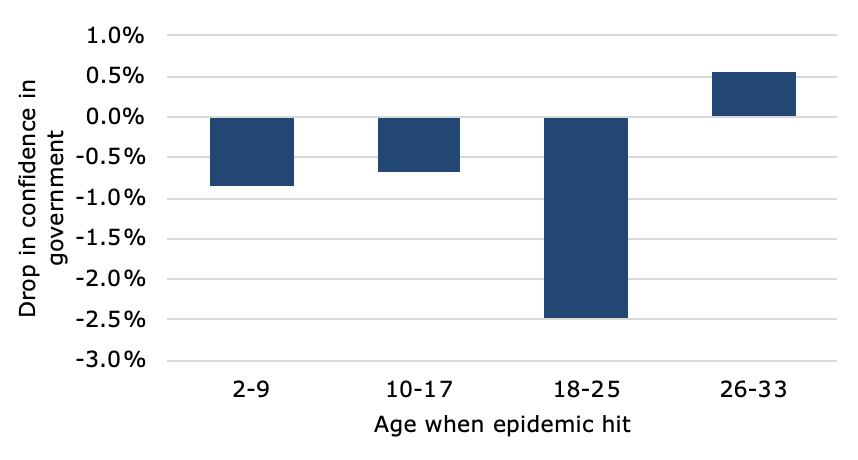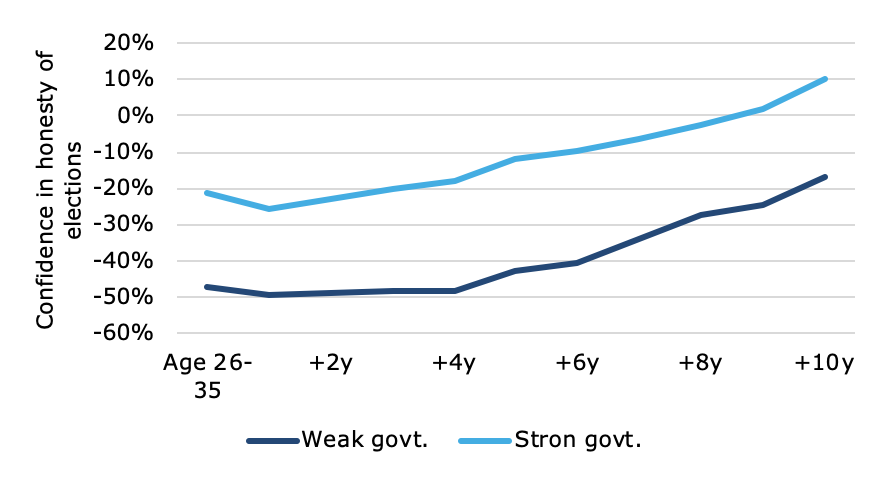Prepare to fight for democracy
The Covid-19 pandemic has put governments to the test like no other crisis in the last decade. Some governments have done well and inspired confidence in the general public, while others have failed.
But we do know that some people will be more influenced by the events of 2020 than others. Most notably, we know that people who are in their formative years (age 18 to 25) tend to be more influenced by crises than people in other age groups. There is evidence that if you live through a recession or a period of high inflation during your formative years, it will stay with you for many years and potentially your whole life. I guess there is a reason why psychologists call it the formative years.
Renowned economic historian Barry Eichengreen from the University of California in Berkely, Cevat Aksay from King’s College, and Orkun Saka from the LSE and the University of Sussex have used these findings as inspiration to check if epidemics and pandemics can have a similar influence on people in their formative years. They used the Gallup World Survey, which asked people in 147 countries on an annual basis between 1920 and 2015 to figure out if epidemics influence political opinions. The Gallup survey doesn’t have any useful economic questions in it, so they used the questions if people had confidence in their government, their political leaders, and in the honesty and integrity of elections as proxies for political views. Because the survey covered more than four decades in countries around the globe, they could measure the effect of all kinds of epidemics, from SARS And H1N1 to Cholera and Ebola.
First, they confirmed what everyone suspected. People who were exposed to an epidemic lost confidence in their government. But the effect was generally small except for people in the formative years. Exposure to a typical epidemic led to a 2.5 percentage point drop in confidence in government and political leadership.
Effect of a typical epidemic on people’s confidence in government

Source: Aksoy et al. (2020)
But what is surprising (at least to me) how long this loss of confidence lasts. The chart below shows the drop in the belief in the integrity of elections of people who were exposed to an epidemic during their formative years. What is remarkable about this chart is that it starts to measure the drop in beliefs not immediately in the epidemic but when the people who were exposed to it have come out of their formative years and are aged 26 to 34 and then every year thereafter. Hence, these are only long-term effects.
Long-term effects of epidemics on the confidence in elections

Source: Aksoy et al. (2020).
Being exposed to an epidemic seriously erodes young people’s belief in elections and (by extension) democracy. If you start to think that elections are rigged anyway, then why bother voting. Or worse, vote for a populist or extremist party to “teach the establishment a lesson”.
The effect is particularly strong in countries with a weak government at the time of the epidemic, where the strength of the government is measured by the unity of government, legislative strength, and popular support. In other words, the United States currently qualifies as a weak government country while Germany and the UK, for example, do not.
The results are a stark reminder that democracies don’t have a natural right to survive. Democracy and freedom have to be defended every day, otherwise, people lose trust in it and start to look elsewhere for alternatives. Let this study be a warning that all of us have cut our work out for the coming years. We all have to stand up and defend democracy and liberty against extremists, populists, and autocrats



